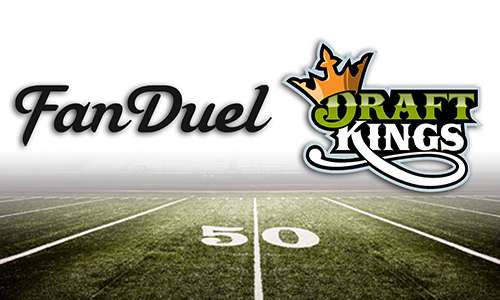New York AG Files for Injunction Against DFS Sites DraftKings, FanDuel
New York State Attorney General Eric T. Schneiderman today filed an injunction against the two largest daily fantasy sports (DFS) sites serving New York residents, DraftKings and FanDuel, alleging several violations of New York’s gambling statutes. The filing follows yesterday’s denial of a motion for a temporary restraining order against Schneiderman’s AG office in a hearing before New York Supreme Court Justice Manuel Mendez, and will likely be joined into an expedited hearing regarding the two companies’ New York-targeting operations currently scheduled for next Wednesday, November 25th.
 FanDuel and DraftKings took differing actions in response to the filing by Schneiderman’s office. FanDuel immediately announced that it would temporarily suspend its operations in the US’s second-most populous state, pending the outcome of next week’s hearing; DraftKings refused to curtail New Yorkers’ access to its ongoing daily and weekly contests.
FanDuel and DraftKings took differing actions in response to the filing by Schneiderman’s office. FanDuel immediately announced that it would temporarily suspend its operations in the US’s second-most populous state, pending the outcome of next week’s hearing; DraftKings refused to curtail New Yorkers’ access to its ongoing daily and weekly contests.
“In FanDuel’s ongoing effort to fight for fantasy users across New York,” the company said, in a corporate statement, “we filed for a temporary restraining order yesterday that would allow users to keep playing on our site while the legal case was pending. The court did not issue the TRO but set a hearing for November 25th, ensuring that the legal situation will be promptly resolved.”
Added FanDuel, “As a result of that decision, we are temporarily suspending entry in paid contests for people located in New York as of 2:30 pm EST today, Tuesday, November 17th. This is in addition to the restrictions on deposits previously implemented. We believe that this restriction is temporary and we hope to be able to offer our paid contests to New Yorkers again very soon.”
As for DraftKings, the company quickly distributed its own brief statement, reading, ““We look forward to being afforded a full and fair opportunity to demonstrate why daily fantasy sports are legal under New York State law. We believe the Attorney General’s view of this issue is based on an incomplete understanding of the facts about how our business operates and a fundamental misinterpretation and misapplication of the law.”
“We remain committed to ensuring that New Yorkers retain the right to continue to play the daily fantasy sports games they love,” added a DraftKings spokesman.
New York AG Schneiderman’s office took the unusual step of issuing a press release announcing the filing of its highly similar, 29-and 30-page complaints against FanDuel and DraftKings, respectively. The AG’s office also filed a 34-page memorandum of law and several supporting, evidentiary appendices in support of the two complaints filed today.
Both FanDuel and DraftKings face the same litany of misdemeanor and felony charges, including the following:
- Ongoing violations of the New York State Constitution (Article 1, Section 9, related to gambling matters);
- Ongoing violations of New York Penal Law (multiple counts);
- Repeated and Persistent Fraudulent Conduct;
- Violations of New York’s Business Corporation Law;
- Violations of New York’s General Business Law.
The twin filings indicate that Schneiderman’s office took considerable umbrage with the claims of the two companies frequently made in commercials which have saturated the US’s major sports-media markets since late August. The same four allegations against FanDuel and DraftKings appear multiple times, distributed throughout the more categorical list of alleged statutory violations against the two firms.
Those allegations claim that the two companies’ conduct included, but was not limited to:
a. Misrepresenting / advertising that defendant complies with applicable laws;
b. Misrepresenting / advertising that casual player is likely to win a jackpot;
c. Misrepresenting /advertising that DFS is a “skill game”; and
d. Misrepresenting /advertising that defendant’s games are not considered gambling.
One of the toughest points the two DFS giants will have to overcome in defending against the AG office’s charges is that New York’s gambling code does not draw any particular line between games that are totally chance (no skill element), and those that have elements of both skill and chance; either activity is legally considered “gambling” in New York.
The press release issued today by Schneiderman’s office leads off by excerpting from the memorandum of law, focusing on exactly this issue. From that memorandum:
The New York State Constitution has prohibited bookmaking and other forms of sports gambling since 1894. Under New York law, a wager constitutes gambling when it depends on either a (1) “future contingent event not under [the bettor’s] control or influence” or (2) “contest of chance.” So-called Daily Fantasy Sports (“DFS”) wagers fit squarely in both these definitions, though by meeting just one of the two definitions DFS would be considered gambling. DFS is nothing more than a rebranding of sports betting. It is plainly illegal.
Yet FanDuel and DraftKings insist that DFS is not gambling because it involves skill. But this argument fails for two clear reasons. First, this view overlooks the explicit prohibition against wagering on future contingent events, a statutory test that requires no judgment of the relative importance of skill and chance—they are irrelevant to the question. Second, the key factor establishing a game of skill is not the presence of skill, but the absence of a material element of chance. Here, chance plays just as much of a role (if not more) than it does in games like poker and blackjack. A few good players in a poker tournament may rise to the top based on their skill; but the game is still gambling. So is DFS.
Both the AG presser and the related memorandum continue by noting that both DraftKings and FanDuel have applied for gambling service providers’ licenses from the UK Gambling Commission; DraftKings have already received said license, while FanDuel’s application is pending. As today’s accompanying memorandum noted, “The attempt to have it both ways extends to the approach of DFS sites with regulators. In the U.S., FanDuel and DraftKings disclaim any links to gambling—where such activities face serious prohibitions. Yet in the United Kingdom, where gambling online is permitted with the appropriate licenses, both companies applied for, and DraftKings received, licenses from the U.K. Gambling Commission.”
According to the New York AG’s memorandum:
FanDuel and DraftKings’ current denials about DFS constituting gambling are belied by how the sites depicted themselves in the past and how they portray themselves behind closed doors. FanDuel’s DFS contests were designed by a veteran of the legal online betting industry in the United Kingdom, Nigel Eccles. The company admitted to an early investor that its target market is male sports fans who “cannot gamble online legally.”
The memo also asserts that, “The CEO of DraftKings [Jason Robins] previously spoke openly about DraftKings as a gambling company. He called DFS a ‘mash[-]up between poker and fantasy sports,’ suggested that DraftKings operates in the ‘gambling space,’ and described its revenue model as ‘identical to a casino.’”
Today’s filings contain considerably more important material in a case that threatens to remake the “legal” United States online-gambling scene. FlushDraw will return with additional excerpts from today’s filings and a look at a couple of specific challenges now facing DraftKings and FanDuel in their efforts to continue providing their services to New York residents. Both firms have generated over 10 percent of their totally revenue from New Yorkers, and the loss of the state’s marketplace would likely trigger a secondary wave of US states moving to eradicate online DFS offerings from within their borders.


















COMMENTS